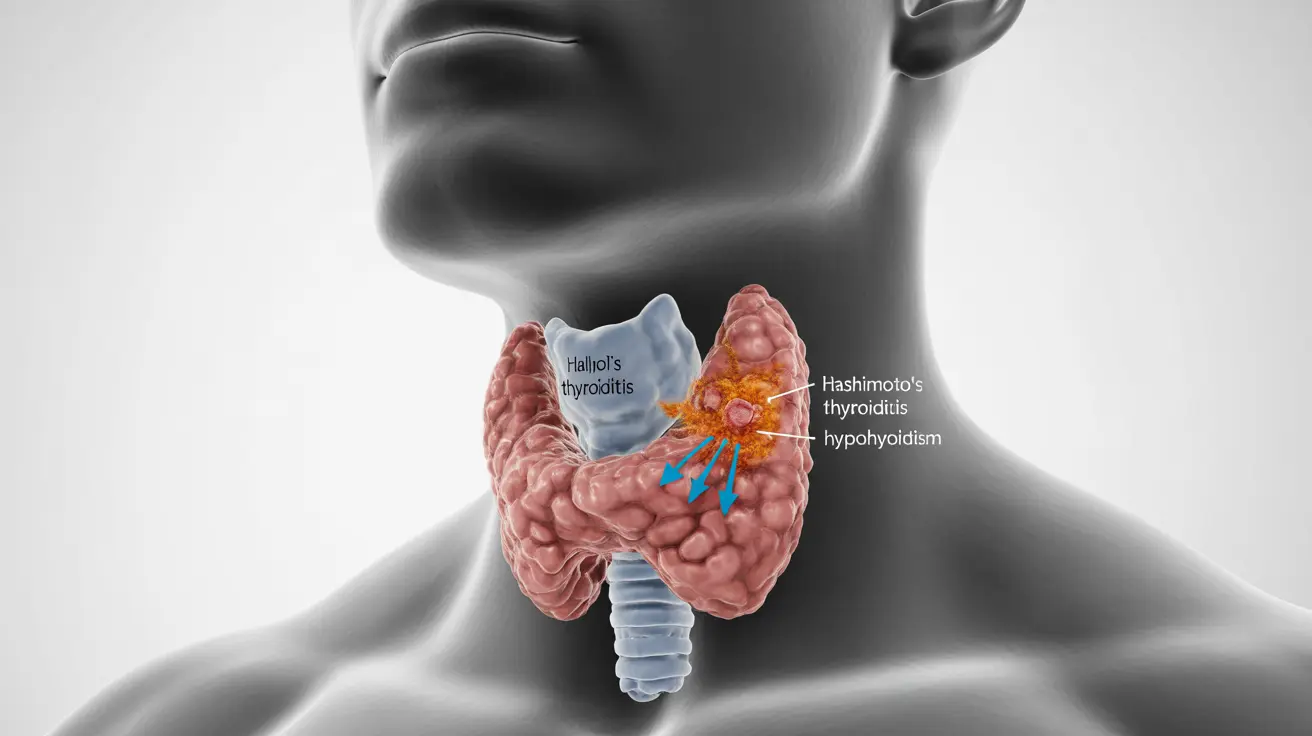Understanding thyroid disorders can be complex, especially when it comes to distinguishing between Hashimoto's thyroiditis and hypothyroidism. While these conditions are closely related, they have distinct characteristics that are important to recognize for proper diagnosis and treatment.
This comprehensive guide explores the key differences between Hashimoto's disease and hypothyroidism, their relationship to each other, and what you need to know about diagnosis, symptoms, and treatment options.
Understanding the Basic Concepts
Before diving into the differences, it's essential to understand what each condition represents. Hypothyroidism is a condition where the thyroid gland doesn't produce enough thyroid hormones. Hashimoto's thyroiditis, on the other hand, is an autoimmune condition where the immune system attacks the thyroid gland, which can lead to hypothyroidism over time.
The Relationship Between Hashimoto's and Hypothyroidism
Hashimoto's thyroiditis is actually the most common cause of hypothyroidism in developed countries. However, not everyone with Hashimoto's will develop hypothyroidism, and not all cases of hypothyroidism are caused by Hashimoto's disease. Other causes of hypothyroidism can include:
- Surgical removal of the thyroid
- Radiation treatment
- Certain medications
- Iodine deficiency
- Congenital conditions
Key Differences in Diagnosis
The diagnostic process for these conditions differs significantly. Hypothyroidism is typically diagnosed through blood tests measuring thyroid hormone levels, specifically TSH (Thyroid Stimulating Hormone) and T4 levels. For Hashimoto's, additional testing is required, including:
- Thyroid antibody tests (TPO and TG antibodies)
- Thyroid ultrasound
- Complete medical history
- Physical examination
Symptom Overview and Distinction
Many symptoms overlap between these conditions, but there are some distinct characteristics. Common symptoms include:
Shared Symptoms
- Fatigue
- Weight gain
- Cold sensitivity
- Depression
- Dry skin
- Hair loss
- Joint and muscle pain
Hashimoto's-Specific Indicators
People with Hashimoto's may also experience:
- Enlarged thyroid (goiter)
- Thyroid pain or tenderness
- Fluctuating thyroid levels
- Family history of autoimmune conditions
Treatment Approaches
While the treatment for hypothyroidism caused by Hashimoto's is similar to other forms of hypothyroidism, there are some important considerations:
Standard Hypothyroidism Treatment
The primary treatment involves thyroid hormone replacement therapy, typically with levothyroxine. Dosage is carefully monitored and adjusted based on regular blood tests.
Additional Considerations for Hashimoto's
People with Hashimoto's may benefit from:
- Regular monitoring of antibody levels
- Lifestyle modifications
- Dietary changes
- Stress management
- Additional autoimmune support
Frequently Asked Questions
What is the difference between Hashimoto's thyroiditis and hypothyroidism?
Hashimoto's thyroiditis is an autoimmune condition where the immune system attacks the thyroid gland, while hypothyroidism is a condition where the thyroid doesn't produce enough hormones. Hashimoto's can lead to hypothyroidism, but hypothyroidism can also occur for other reasons.
Can Hashimoto's disease cause hypothyroidism and does everyone with Hashimoto's develop it?
Yes, Hashimoto's disease can cause hypothyroidism, but not everyone with Hashimoto's will develop it. Some people may have antibodies present for years before experiencing any thyroid dysfunction, while others might never develop hypothyroidism.
How is Hashimoto's thyroiditis diagnosed compared to other causes of hypothyroidism?
Hashimoto's diagnosis requires specific antibody testing (TPO and TG antibodies) and often ultrasound imaging, while general hypothyroidism is diagnosed primarily through TSH and T4 blood tests.
What are the common symptoms shared by Hashimoto's and hypothyroidism, and how can they be distinguished?
While both conditions share symptoms like fatigue, weight gain, and cold sensitivity, Hashimoto's may also present with additional features like thyroid enlargement (goiter) and fluctuating thyroid levels. The presence of thyroid antibodies helps distinguish Hashimoto's from other causes of hypothyroidism.
What are the treatment options for hypothyroidism caused by Hashimoto's compared to other causes?
Treatment for both conditions primarily involves thyroid hormone replacement therapy. However, Hashimoto's patients may require additional monitoring and lifestyle modifications to manage the autoimmune component of their condition.




